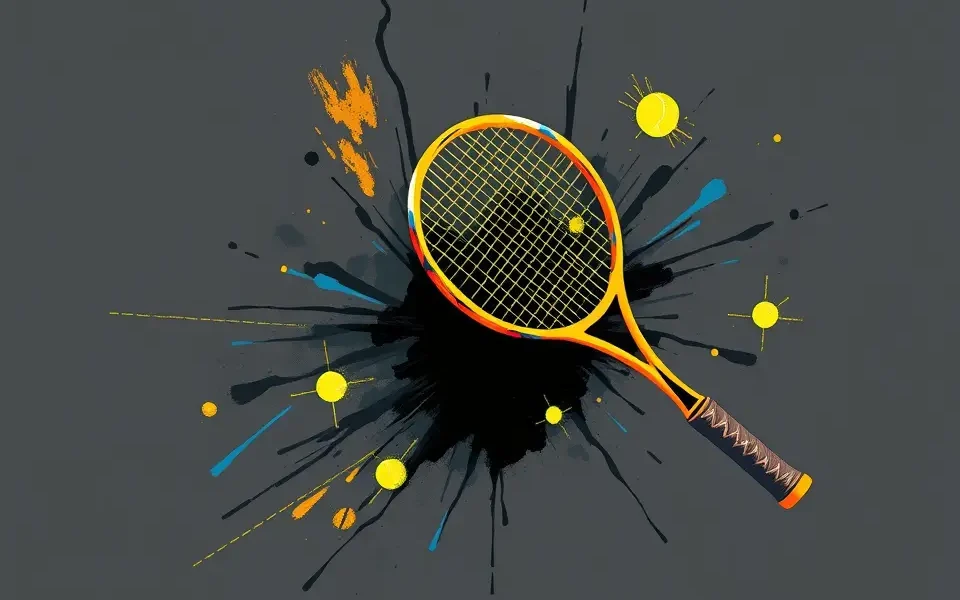Jannik Sinner, the world No. 1 tennis player, has recently opened up about his three-month suspension for a doping violation and his mindset as he returns to the sport. Sinner agreed to a three-month ban in February after reaching a settlement with the World Anti-Doping Agency (WADA) following two positive drug tests in 2024. The suspension, which concluded on May 4, 2025, has been a challenging period for the young Italian, but he is now focused on the future, with his sights set on the French Open.
The ‘Hardest Moment’ Revealed
Sinner revealed that the “hardest moment of the suspension was at the beginning”. He explained that he was restricted from attending any sporting events in person, which was particularly difficult for him. “I don’t know how many people know this, but I couldn’t go to the stadium to watch a football match or follow a cycling race of my friends. Or in motorsport. That for me was the toughest part”.
Despite these challenges, Sinner tried to make the best of the situation, spending time with his family. This period of rest and reflection may prove beneficial as he returns to the court.
The Doping Controversy: A Timeline
The controversy began in March 2024 when Sinner tested positive for the anabolic steroid clostebol. He and his team successfully argued that the substance entered his system unintentionally through a massage given by his physiotherapist, Giacomo Naldi. Naldi had used an antiseptic spray containing the banned substance on a cut on his own hand and then treated Sinner with a bandaged but ungloved hand.
Initially, the International Tennis Integrity Agency (ITIA) declined to suspend Sinner, but WADA appealed the decision, leading to the three-month ban. WADA stated that they were “prepared to enter into a settlement agreement… with Sinner” because they understood that “Mr. Sinner did not intend to cheat, and that his exposure to clostebol did not provide any performance-enhancing benefit”.
Accepting the Ban: Choosing the ‘Lesser Evil’
Sinner described the decision to accept the three-month ban as choosing “the lesser evil”. He admitted that he didn’t “agree completely” with the decision but recognized it was the best course of action. “In the end, you have to choose the lesser evil and I believe that is what I have done. Even if sometimes it seems a bit unfair, all that I’m living, but then if I look at things from a different perspective it could have been worse. Even more unfairness”.
He also revealed that the decision was made quickly after discussions with his lawyer and his team. “The decision to take the three-month suspension was rather quick. We accepted it quite quickly, even though I didn’t agree completely. There was a bit of back and forth with my lawyer and the people around me,” Sinner said.
Mental Impact and Thoughts of Quitting
Sinner confessed that he considered taking an extended break from tennis before accepting the ban. “I remember before the Australian Open this year, it wasn’t a very happy time,” Sinner added. “I didn’t really feel comfortable in the locker room, where we were eating. Players were looking at me differently. I said to myself, ‘Maybe I need to take some time off after Australia.’ I didn’t want (the ban) though”.
He further explained the mental impact of the suspension: “I had a tough time accepting these three months. Because I knew that I didn’t do anything wrong. So why do I have to pay this price?”.
Sinner’s Return: Italian Open and French Open Goals
Sinner’s suspension has now expired, and he is set to compete at the Italian Open in Rome. The tournament is generating significant buzz, with local headlines proclaiming “Habemus Sinner,” a play on the Latin phrase “Habemus Papam!” used when a new pope is elected. This marks the first time that Italy has had a No. 1 player for its home tournament.
However, Sinner is tempering expectations for the Italian Open. “I have to say I have low expectations for this tournament. I’ve been sitting out for so long and I don’t have any feedback on how I’m going to play,” he stated.
Looking ahead, Sinner’s primary goal is the French Open. “The goal will be Paris, I’m not here to beat anyone but to try to get through the first round and then we’ll see what can happen,” he said. He acknowledges the challenge of returning to competition after a long break. “It’s difficult for me to start a new tournament and get back to the rhythm. But we’re very calm, we’re physically and mentally well, we’re rested, which will pay off at the end of the season too”.
Controversy and Criticism
The relatively short duration of Sinner’s suspension has drawn criticism from some quarters. Some have suggested that he was treated leniently compared to other athletes who have faced similar doping violations. Novak Djokovic, for example, criticized the “strange” punishment and suggested “favouritism” in the case.
Sinner has declined to comment directly on the criticism. “I don’t even want to respond. Everyone is free to say what they want. For me, the important thing is that I know what happened,” Sinner said. “I don’t wish it upon anyone who is innocent to go through what I went through”.
Ranking Impact
Despite the three-month suspension, Sinner has retained his No. 1 ranking. He was able to maintain his lead over Alexander Zverev and Carlos Alcaraz because they did not accumulate enough points to surpass him during his absence.
Looking Forward
As Jannik Sinner returns to the court, he faces the challenge of regaining his form and rhythm after a significant break. However, he is physically and mentally rested and eager to compete. With the Italian Open and the French Open on the horizon, Sinner is focused on the future and determined to continue his successful career. Despite the controversy and challenges of the past few months, he remains a top player in the world.








No Comment! Be the first one.